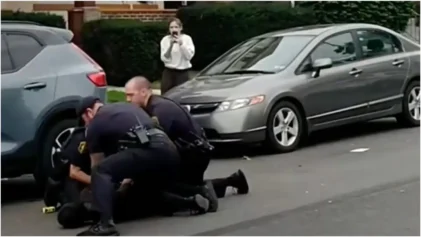Chattanooga native Ed Johnson has been memorialized in the city where he was born and killed over a century after being lynched by a mob following his historic trial.
Johnson’s life was taken on the Walnut Street Bridge in 1906, and on Sunday, Sept. 19, he, along with the Black attorneys that defended him, were immortalized in statue form at the very same location.
The slain Chattanoogan was wrongly sentenced to death for the attack and rape of a white woman by an all-white jury but was granted a stay of execution by the U.S. Supreme Court, making him the first Black man to receive the ruling, and the trial the first criminal case in which the Supreme Court involved itself.
The memorial service was attended by Mayor Tim Kelly, who opened the dedication with a welcome and a “long, long overdue” apology. “It was a gross injustice,” he said of Johnson’s lynching. “I think this process of reconciliation is really critically important for the city.”
Kelly said, “115 years ago in this city and in this place, a miscarriage of justice and a horrific act of violence set into motion a historic series of events that would make its way to the Supreme Court and set a landmark precedent for civil rights cases across the country.”
“The lynching of Ed Johnson was a terrible but essential chapter in Chattanooga’s history and a chapter that for too long has been downplayed and dismissed,” he added, before reading a proclamation apologizing “to Mr. Ed Johnson for the miscarriage of justice that occurred on March 19, 1906.”
Johnson was defended by Noah Parden and Styles Hutchens. Parden became one of the first Black lawyers to appear before the U.S. Supreme Court due to the case. On March 19, the day that the Supreme Court granted a second stay for Johnson and two days after Parden met with U.S. Supreme Court Justice John Marshall Harlan, Johnson was dragged from the jail where he was being held by an enraged mob, which included members of the local police force, and hanged from the second span of the Walnut Street Bridge.
Johnson’s last words spoken from the bridge were, “God bless you all, I am a innocent man,” which are also engraved on his tombstone.
Both Parden and Hutchens fled the city after the lynching out of fear for their own lives.
In February 2000, Johnson’s conviction was overturned by Hamilton County Criminal Judge Doug Meyer. Now the memorial serves as a permanent reminder to the city, symbolizing grace, courage, and compassion.
“As the Ed Johnson Memorial Dedication kicks off Mayor Tim Kelly offered a welcome address and an apology. Mayor Kelly stated that this is long long overdue and that the city failed Ed Johnson.”
Princeton University Department of African American Studies Chair Dr. Eddie S. Glaude Jr. gave the keynote speech, acknowledging the tragedy while reminding attendees that this is one small step forward for a much larger issue. “It is rare in these trying times that communities come together to recognize a profound wrong, a wrong that haunts,” he told the crowd, according to WTVC News Channel 9.
“America will not change and Chattanooga will not change until it re-examines itself and discovers what it truly means by the words, democracy, and freedom,” noted Dr. Glaude, “and that we understand both words as practices and not as ends.”
Johnson’s murder led to the Supreme Court’s only criminal trial, The United States v. Shipp, which resulted in the sentencing of then-Sheriff John F. Shipp and many others being charged with contempt of court for failing to supply proper protection for Johnson following several warnings and previous lynching attempts. Shipp was sentenced to only 90 days imprisonment.


